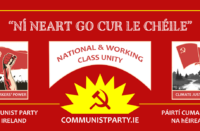Arrival, a recent and popular sci-fi film based on the Ted Chiang novella Story of Your Life, and China Miéville’s perennially popular Embassytown both build on a long tradition of fiction challenging and examining the power of language.
These are especially interesting because of their focus on the interaction of language and thought. In Arrival, learning the Heptapods’ written language gives the learner an expanded view of time, allowing people to “remember” the future. The Hosts of Embassytown are bound to honesty and sincerity, so when the concept of lying is introduced into their language it fractures reality for those who listen.
The reasons these stories hold such appeal is the subject matter. Since language is how we share our own internal consciousness with others, it is hard not to be fascinated by the power this has in the shaping of other people’s consciousness.
“Language is as old as consciousness, language is practical, real consciousness that exists for other men as well, and only therefore does it also exist for me; language, like consciousness, only arises from the need, the necessity, of intercourse with other men.”
Marx
According to Marx, Lenin, and several Soviet psychologists, language’s main purpose is that of communication. While it has other functions, it is the primary means by which to exchange information and develop ideas.
However, language cannot simply be reduced to the words used to describe or name an object: it must also encompass the schema, the pattern of thought, which categorises that information and explains its relationship with the world. These schema are the unconscious messaging encoded within language; they convey the word and the concept of the word.
In recent years terms like “fireman” have been replaced by the more neutral “firefighter,” after some feminist and womanist scholars challenged English linguistics with the notion that many English words in common use reinforce patriarchal norms. “Man”—no matter what the development of the word—is now very clearly understood and accepted to mean a person of the male gender. A woman who puts her name forward for the position of “fireman” would not go too far wrong in thinking that there is a cultural and historical bias against her vying for the position. Sara Mills shows in her book Feminist Stylistics that men and women apply for jobs in more equal proportions when gender-neutral language is used in describing the job.
But there are limitations. By taking an approach that deals with word usage alone, often we are merely changing the word and not the world that created it. Mills did not show if increased job application led to a greater employment of women in these typically male roles. Search on line for “firefighter” and most images that pop up will be of men. For “nurse,” an accepted gender-neutral word, most images are of women.
The accepted norms of these words are gendered, even if they do not explicitly end with an –ess or –man. Simply put, the concepts of nurse and firefighter have remained largely unchanged. A word only ever truly changes its meaning when the concept changes, that is when society, culture or the world’s understanding of it changes.
By adjusting the language we use, it is possible to change or influence people’s understanding of the concepts in question. A common and simple psychological experiment is to ask the same question, slightly reworded, of a group and judge how responses can be predicted and influenced, given the language used. This is known as psychological priming. An extreme example is when participants were asked if they were given a potion that could ensure either that 50 per cent of the population would live for ever or that would leave 50 per cent of the population to die, respondents were more likely to use the potion if associated with the action phrased in a positive light, even though the two actions were equal in outcome.
This twisting of language to describe “choices” is a common tactic used in human resource management and advertising. (Manipulation by advertising was the subject of an article in the November issue of Socialist Voice.) In HRM this manipulation creates an environment where managers can pressure workers into agreeing to their own oppression and to create a false sense of solidarity with the employers over that of one with others workers. A whole sub-industry of psychologists and corporate consultants has blossomed to further develop these strategies.
Language, as a result, can be used as a method of control and eradication. Ideas and concepts that are considered threatening or “immoral” can be challenged, and to some degree defeated, by force, but it is only through legalistic measures and the imposition of a dominant language that these challenging concepts can be quietly, and often successfully, erased from the mainstream narrative.
The legacy of imperialism, which has left scars all over the world, as well as in Ireland, continues within the now dominant languages. In the United States the government controls the definition of “tribe,” and sets the standard that Native American tribes must meet in order to be officially recognised as such. Tribal lands are held in trust by the same governmental body. If the tribe no longer meets the definition as set down, that same body stands to gain the land, and all through entirely legal methods.
Although language is not class-derived, the ruling and capitalist classes have greater ranges of language and claim greater authority on usage and meaning. Their authority is typically upheld through academia, media, and other institutions. The left may understand what it means when it uses such terms as Irish border, Spanish Civil War, democracy, or Israeli-Palestinian conflict, but these phrases unintentionally propagate hegemonic capitalist ideas and change the perception of these events and thus the concepts themselves.
We must say what we mean, and be clear about it: a British-imposed border in Ireland, an anti-fascist war, working-class power, an illegal, apartheid-occupation. Trade unions, activists, communities, political groups and parties must challenge hegemony in all its forms; and language can be no exception.
There are no pure forms of any word: they exist within and are shaped and moulded by the culture and society in which they develop. As Paulo Freire said, “language is never neutral.” Like that of a “pure thought,” the notion of a “pure word,” devoid of any influence by history or of the material world, is the play place of those without any foundation in material reality.
A concrete example of how language shapes how we think about the world is the study “Native Language Promotes Access to Visual Consciousness” (2018) by Martin Maier and Rasha Abdel Rahman, which confirmed that, while colours may be the same around the world, the language in which they are described has an impact on how they are perceived. For the Greeks of Homer’s classics, the colour blue didn’t exist as a word. Arguably, until Egyptian blue dye was imported “blue” didn’t exist as a concept, though the sky was little different from today.
This is not to wander towards an Orwellian approach to language or a Newspeak-esque dystopia but rather an acknowledgement that language for the left needs to be of paramount importance. Terms that can seem at first intimidating or archaic give voice to a world view that there is little opportunity to encounter or understand otherwise. We must refute arguments promoting the oversimplification of our terminology for the sake of easy sound bites, memes, or simple solutions. We cannot give in to the misguided belief that we can somehow use and control the terms of our oppressors while they tighten their chains around our bodies and our minds.






